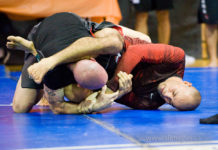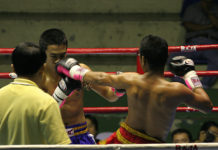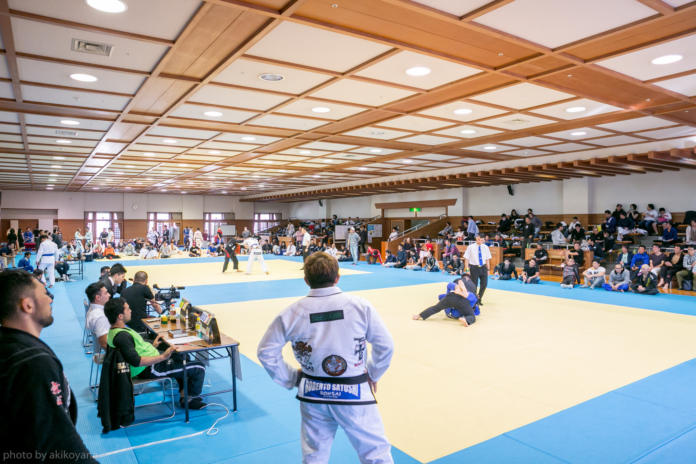You may not own an academy, or even be an instructor. But from time to time, you’re thrust into the position of BJJ coach. There could be many reasons. Maybe your coach got tied up in another match, or maybe you’re coaching a friend, or a brand new student.
Like a real life Frodo Baggins, the burden shouldn’t fall on you, but it does. Somehow, you need to coach someone to victory.
What do you do? Yell cliches? Scream Brazilian obscenities? Throw a chair?
Relax, you don’t need to be a John Danaher to do a good job coaching in your first outing. Really, it’s the competitors that make 90% of the difference. You only need to do some basic things to get your competitor through their match:
1) Don’t yell useless things.
Sometimes less is more. You may feel like you should be saying something. But often, there is nothing to say. You just have to let the match play out until a “coach-able moment” arises.
The golden rule is to give specific, actionable instructions. If your guy is stuck on the bottom, screaming at them to “get up!” isn’t very helpful. Tell them how. Call out techniques they should look for. This leads into the next piece.
2) Avoid tipping off opponents.
Telling your buddy that he is in a perfect position for an armbar is the same thing as telling his opponent to watch his arm. The person you’re coaching needs to meet you halfway, and have enough wherewithal to intuit what you mean when you yell, “I like where your hand is at!”
Think of it more like the, “you’re getting warmer” game. Praise your guy when they get a strong grip or are in the general vicinity of a submission.
Of course, “avoid” is the key word here. Sometimes you just have to blurt out, “Watch the triangle!” and alert both parties in the process.
3) Call times and points
This is sort of a no brainer, but call out times so your competitor knows when they’re at the halfway point, and then two or one minutes. You don’t need to go crazy on this.
Also, you should call out the points. You don’t need to get crazy here either. It basically come down to two things: they’re either up or down. If they’re up by a lot, encourage them to be conservative. If they’re down by a lot, encourage them to be aggressive. It also helps to be aware of the basic IBJJF rules here. Knowing how advantages or penalties work could make the difference in a close match.
4) Let them implement their game, or lack of one
It’s possible that you and your competitor have radically different styles. You may not even be able to give great advice to them if they’re a top heavy wrestler and you’re a guard player. This is fine.
What you want to be careful of is giving them advice as if they were you. Don’t tell your wrestling buddy to invert just because you’re more comfortable coaching from that position. Let them do what they’re good at. Chances are if they have a defined game plan, they don’t need you to do much more than calling the times, points, and threats they can’t see.
On the other end of the spectrum, you may be coaching someone who has no game plan at all. In this case, you can definitely be more prescriptive. But remember that you can’t teach someone a move in a tournament. Yelling out instructions for an elbow escape to someone who’s never done it is not likely to work. Accept what you have to work with and do the best you can.
5) Count to three.
Seriously, this a basic and very helpful thing. If the person you’re coaching passes guard. Tell them to hold it and count to three. Count loud, so the referee can hear you as well. This will make sure that everyone knows you scored points. While we’re on this, you can also coach you guy to make sure both hooks are in when they have the back, or to avoid reaping, or even to move to turtle as their guard is passed to avoid losing points. All of these are about gamesmanship, and in the heat of the moment, the person in the fight may forget about them.
What say the professional coaches out there? What are your golden rules for coaching an athlete?





